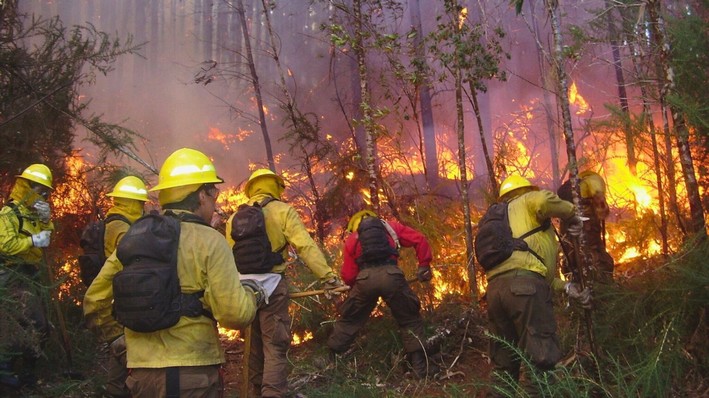The National Forestry Corporation (Conaf) issued a warning about what could be one of the most challenging wildfire seasons in southern Chile. The combination of a significant water crisis and the forecast of high temperatures has led the entity to take preventive measures and collaborate closely with the agricultural community.
María Teresa Huentequeo, director of Conaf in the La Araucanía Region, reported that the region is facing a rainfall deficit of between 20 and 30 percent. This drought is causing vegetation, such as grasses and shrubs, to dry out rapidly, increasing the risk of them serving as fuel for future fires. The situation is so severe that working groups are being organized with farmers for the removal of weeds and plant debris, a crucial preventive practice to reduce the available fuel load.
Conaf, as a technical body, is also responsible for receiving burn notices and plans from the agricultural sector, a task that takes on special importance in the current context. The entity is on alert due to the possibility that low humidity conditions and the high temperatures forecast for the coming months could facilitate the ignition and spread of large-scale wildfires.
Chile is in the process of implementing a new Wildfire Law, which aims not only to expedite the reconstruction of areas devastated by fire but also to apply effective sanctions to those responsible for fires. However, the approval of this law faces obstacles, including the low conviction rate for fires caused by negligence or intentionally, which currently stands at only between 1 and 1.5 percent.
The situation is a call to action for authorities and the population, in order to take all possible preventive measures and be prepared for a wildfire season that is expected to be challenging.







Comments (0)
No comments yet. Be the first to comment!
Leave a comment